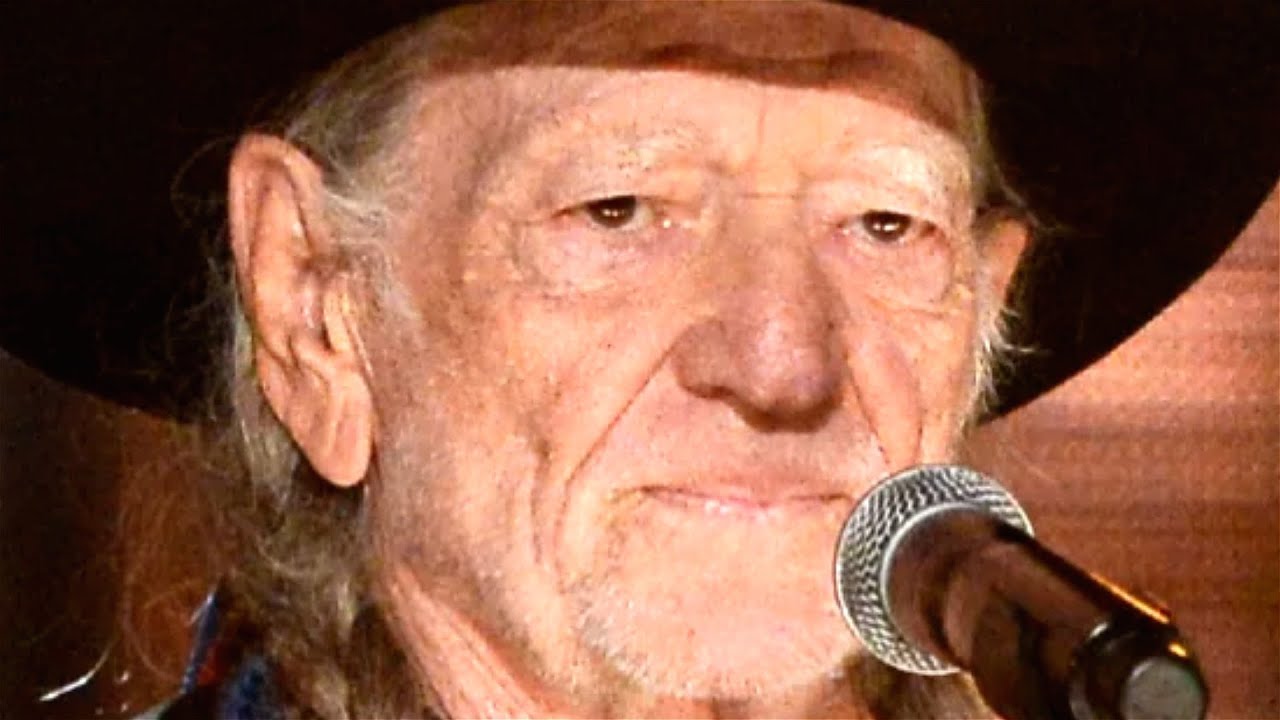
The Outlaw Quartet That Changed Country Music Forever
In the winter of 1984, four of country music’s most iconic voices converged unexpectedly in the alpine shadows of Switzerland. Amid the snowflakes and the strumming of guitars, a legendary collaboration was born—one that would redefine the boundaries of country music. These four men—Johnny Cash, Willie Nelson, Waylon Jennings, and Kris Kristofferson—would come to be known as The Highwaymen, a name that would echo through the halls of musical history for decades to come.
The idea for this musical union didn’t come from a record executive’s vision, but rather from a simple jam session following the taping of a televised Johnny Cash Christmas special in 1984. With Cash’s career in a temporary lull and spirits low, it was during this European visit that Marty Stuart, a talented musician and Cash’s son-in-law at the time, witnessed a spark igniting in the usually stoic singer. Stuart even referred to the group project as “Johnny’s first glimmer of hope in a while.”
Finding harmony among four deeply distinct voices was no easy feat. Where others might have floundered, Stuart cleverly offered a song that required no harmonizing—“Highwayman,” written by Jimmy Webb. It was a piece divided into four vignettes, tailor-made for the group. Cash eagerly agreed on the condition that he could sing the verse about the starship. The track became not only the group’s namesake but also their only number-one single, earning a Grammy in 1985 for Best Country Song.
Initially released under their individual names, “Highwayman” as an album didn’t yet christen them as a group. It wasn’t until they began touring in 1990 that the quartet officially adopted the moniker “The Highwaymen.” However, that name was already claimed by a folk group from the 1950s and 60s. A lawsuit quickly arose but was amicably resolved outside of court—the original Highwaymen were offered a chance to open for the country supergroup in Los Angeles, a generous gesture that smoothed over the dispute.
Contrary to public perception, the bonds among the four were a patchwork of relationships. Some were close, like Cash and Jennings, or Kristofferson and Nelson. Others, like Cash and Nelson, were more distant prior to the group’s formation. Yet, it was pure friendship—not marketing magic—that birthed The Highwaymen. According to Cash’s daughter, Rosanne, there was “no marketing guy who came and said this will be a good idea—they just wanted to play together.”
There was even talk of a fifth member: the legendary Merle Haggard. All four men admired him, but Haggard ultimately declined the offer. Had he joined, the dynamics might have further shifted in an already combustible brotherhood. For while they shared profound camaraderie, the group—like any tight-knit unit—had its tensions. According to Waylon Jennings’ son, Shooter, bickering was not uncommon. Disagreements over song choices or setlists, even mild personal disputes, occasionally flared up.
Philosophically, there were differences too. Jennings, preferring to separate politics from performance, often disagreed with Kristofferson’s more vocal activism. Still, they respected one another’s views, and their personal bond surpassed any onstage differences. As Jennings’ widow, Jessi Colter, later said, “It was a loving thing. They understood each other.”
Though their debut album in 1985 enjoyed critical and commercial success, their subsequent releases—“Highwayman 2” in 1990, and “The Road Goes On Forever” in 1995—failed to capture the same momentum. Their swan song was quiet, as Waylon Jennings passed away in 2002, followed by Johnny Cash in 2003. Yet their legacy refused to be silenced.
In 2016, a commemorative collection titled “The Highwaymen Live: American Outlaws” was released, showcasing the group’s electrifying stage presence. A PBS documentary, “The Highwaymen: Friends Till the End,” offered a heartfelt glimpse into the bond the four legends shared. Kristofferson once said of his time with the group, “It was heaven… We stood up for what we believed in, and it was a beautiful life.” Nelson added, “Those were the best times of my life.”
The Highwaymen were more than just a band—they were an alliance of spirits, kindred souls strumming their way across the American landscape. Together, they carved a poetic chapter in country music lore, reminding us that when legends unite, the road indeed goes on forever.
Video
The Untold Truth Of The Highwaymen – YouTube
